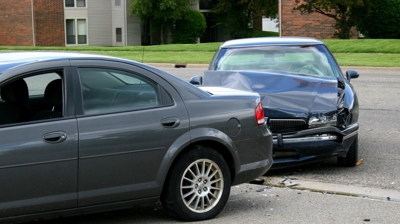
Truck vs. Car Accidents in Kissimmee, Florida
In the bustling city of Kissimmee, Florida, accidents involving both trucks and cars are unfortunately common occurrences. However, navigating the legal aftermath of these accidents requires a nuanced understanding of the differences between the two. In this blog, we’ll delve into the legal disparities between truck and car accidents in Kissimmee and why Kemp Law is your optimal choice for representation.
Deciphering the Legal Variances
Truck Accidents:
- Regulatory Complexity: Truck accidents involve a myriad of federal and state regulations that govern the trucking industry. These regulations, such as hours-of-service requirements and weight restrictions, can significantly impact liability in a truck accident case.
- Potential Multiple Parties: Unlike car accidents, truck accidents often involve multiple liable parties, including the truck driver, trucking company, maintenance contractors, and manufacturers. Determining liability requires a thorough investigation and understanding of each party’s role.
- Severity of Injuries: Due to their size and weight, truck accidents typically result in more severe injuries and damages compared to car accidents. Compensation for medical expenses, lost wages, and pain and suffering may be substantially higher in truck accident cases.
Car Accidents:
- Standard Liability Rules: Car accidents typically follow standard liability rules, where the negligent party is held responsible for damages. However, proving liability can still be complex and may require gathering evidence such as witness testimonies, police reports, and medical records.
- Insurance Coverage: Car accidents often involve insurance companies, which can complicate the claims process. Understanding insurance policies and negotiating with insurance adjusters require legal expertise to ensure fair compensation.
- Comparative Negligence: Florida follows a comparative negligence system, where damages are reduced based on each party’s degree of fault. Proving comparative negligence in car accident cases demands strategic legal representation.
Local Insights: Kissimmee Landmarks and Accident Factors
Kissimmee, known for its proximity to world-renowned theme parks like Walt Disney World Resort and Universal Orlando Resort, experiences a high volume of tourist traffic, contributing to its accident statistics.
Key Factors Contributing to Accidents in Kissimmee:
- Tourist Traffic: The bustling streets surrounding theme parks and attractions, such as Old Town Kissimmee and Fun Spot America, witness heavy tourist traffic, increasing the likelihood of accidents.
- Highways and Interstates: Major thoroughfares like Interstate 4 and US Route 192 serve as vital transportation routes but also pose risks for accidents, particularly during peak travel times.
- Intersection Hazards: Busy intersections like the junction of Vine Street and John Young Parkway can be accident hotspots, requiring heightened vigilance from drivers.
Why Choose Kemp Law?
When faced with the complexities of truck or car accident cases in Kissimmee, Kemp Law offers unparalleled expertise and dedication:
- Specialized Knowledge: With years of experience in personal injury law, including truck and car accidents, our legal team possesses the specialized knowledge needed to navigate complex cases effectively.
- Local Presence: As residents of Kissimmee, we understand the local landscape and legal intricacies, enabling us to provide tailored legal strategies that yield optimal results for our clients.
- Proven Track Record: Kemp Law has a proven track record of securing favorable outcomes for accident victims, earning the trust of clients and peers alike.
Take Action with Kemp Law
If you’ve been involved in a truck or car accident in Kissimmee, don’t navigate the legal process alone. Trust Kemp Law to fight for your rights and pursue the compensation you deserve.
Contact Kemp Law today for a free consultation and take the first step towards justice.
With Kemp Law by your side, you can rest assured that your case is in capable hands.






